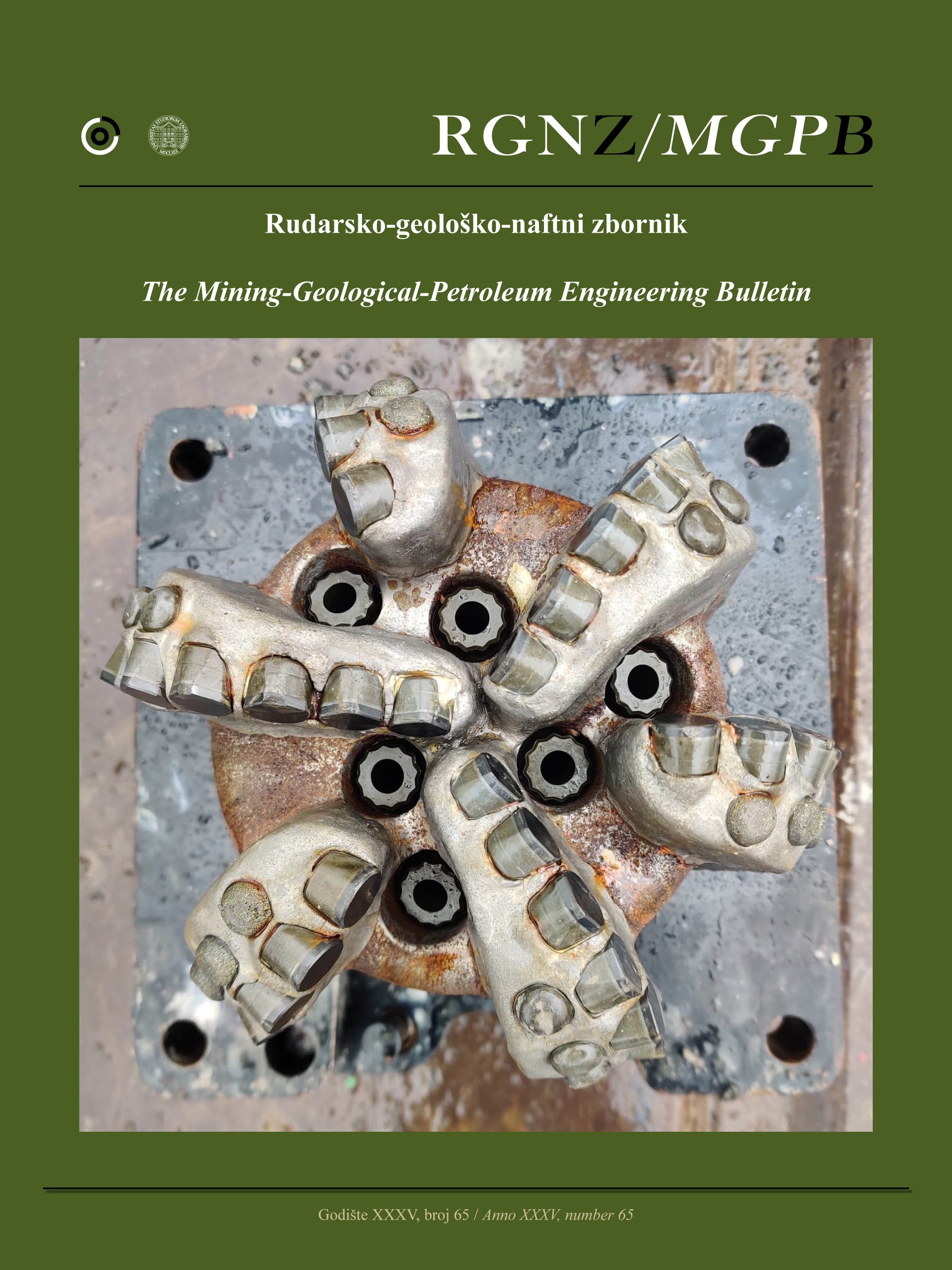Influence of raw material properties on waste-based glass foam
DOI:
https://doi.org/10.17794/rgn.2023.4.7Keywords:
recycling, glass foam, red mud, fly ash, eggshellAbstract
Glass foam tablets were prepared by using mixed glass bottles (green, brown, and white), eggshell waste as a foaming agent, Na-bentonite as binder material, and red mud as an additive, respectively. The influence of the amount of red mud and fly ash on the properties (foaming temperature, mechanical strength, specimen density and porosity, thermal conductivity) of the tablets was studied. The foamed tablets contained 2.5 wt % binder material, 0.1 wt % foaming agent, 5 wt % fly ash, and red mud as additives in different ratios (0 – 40 wt %). After homogenization, the ground raw materials were pressed into tablets at 30 MPa using a hydraulic piston press. The products were heat treated at different temperatures with different heating rates. The final product’s properties were measured (specimen density, thermal conductivity, and mechanical strength through falling and abrasion resistance tests). The most convenient results were shown at 5 wt % red mud in this case, the specimen density and thermal conductivity were the lowest, the values were 0.3 g/cm3 and 0.036 W/mK. If 5 wt % of fly ash was added to the mixture the density value stayed the same, the thermal conductivity increased to 0.048 W/mK, but the mechanical strength of the tablets rapidly increased.
Downloads
Published
How to Cite
Issue
Section
License
Copyright (c) 2023 Fóris Ildikó, Gábor Mucsi

This work is licensed under a Creative Commons Attribution 4.0 International License.
Creative Commons-BY
Authors who publish with this journal agree to the following terms:
In agreeing this form, you certify that:
- You read the ethical codex of the RGN zbornik available at journal web.
- You submitted work is your original work, and has not previously been published and does not include any form of plagiarism.
- You own copyright in the submitted work, and are therefore permitted to assign the licence to publish to RGN zbornik.
- Your submitted work contains no violation of any existing copyright or other third party right or any material of an obscene, libellous or otherwise unlawful nature.
- You have obtained permission for and acknowledged the source of any illustrations, diagrams or other material included in the work of which you are not the copyright owner.
- You have taken due care to ensure the accuracy of the work, and that, to the best of your knowledge, there are no false statements made within it.
- All co-authors of this submitted work are aware of, and in agreement with, the terms of this licence and that the submitted manuscript has been approved by these authors.
Publication licence
You retain copyright in your submitted work, according to journal license policy (CC-BY). By signing this form you agree that RGN zbornik may publish it under the publication licence. In summary the licence allows the following:
Anyone is free:
- To copy, distribute, display, and perform the work.
- To make derivative works.
Under the following conditions:
- The original author must always be given credit.
- The work may not be used for commercial purposes.
- If the work is altered, transformed, or built upon, the resulting work may only be distributed under a licence identical to this one.
Exceptions to the licence
In addition to publishing the work printed under the above licence, RGN zbornik will also enable the work to be visible online.
The journal editorial can change the licence rules anytime but it cannot retroactively restrict author(s) rights.


